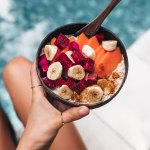Are Natural Supplements the Key to a Sharper Mind? What to Know About Brain-Boosting Remedies
Healthy’s Summary
Whether you’re trying to power through work without losing focus or want to keep your memory sharp as the years roll on, natural supplements for brain health have probably caught your eye. From omega-3s to ginkgo biloba to adaptogens like ashwagandha, there’s a growing list of herbs, vitamins, and natural compounds being marketed for mental clarity, better mood, and long-term cognitive support.
But do they really work? Some, like fish oil and B vitamins, are backed by strong science. Others, like ginseng or bacopa, show promise but need more research. And how these supplements affect you can depend a lot on your age, lifestyle, stress levels, and even what you’re already eating.
The bottom line? Some natural supplements can be part of a smart brain-care routine—but they work best when paired with healthy habits, and they’re definitely not one-size-fits-all.
What Natural Supplements Actually Do for Your Brain
Natural brain supplements, often called nootropics or “cognitive enhancers,” aim to support mental performance through more natural means—think herbs, vitamins, minerals, and plant compounds instead of pharmaceuticals. They’re used for a wide range of brain-related goals: memory, focus, mental stamina, stress resilience, and even mood.
But here’s the truth: while many of these are available over the counter, not all of them are well-studied or effective for everyone. So, let’s break down the most popular ones—and what science says about each.
Top Natural Brain Boosters (That Might Be Worth Trying)
1. Omega-3 Fatty Acids (Fish Oil)
Omega-3s—particularly DHA and EPA—are essential fats that play a major role in brain development and maintenance. DHA is especially concentrated in the brain, and low levels have been linked to cognitive decline and mood issues.
Multiple studies have found that supplementing with fish oil can help with memory, attention, and mood, especially in older adults or those who don’t get enough omega-3s in their diet. NIH omega-3 overview
Best for: Aging brains, mood support, general brain health.
2. Ginkgo Biloba
One of the oldest herbal remedies out there, ginkgo is thought to improve blood flow to the brain and act as an antioxidant. It’s been studied for its potential to help with dementia and memory loss—though results are mixed.
A major review from the National Center for Complementary and Integrative Health (NCCIH) found ginkgo may offer modest improvement in cognition for people with dementia, but less evidence supports its use in healthy individuals. NCCIH on ginkgo biloba
Best for: Mild cognitive decline, brain circulation.
3. Bacopa Monnieri
Used in Ayurvedic medicine, bacopa is an herb that’s believed to enhance memory and reduce anxiety. Some small human studies have shown improvements in memory recall and reaction time with consistent use (typically over several months).
It works slowly, so patience is key—and it may be more effective for older adults or people under cognitive stress.
Best for: Long-term memory support, mental processing speed.
4. Rhodiola Rosea
An adaptogen herb that helps your body handle stress, rhodiola is often taken to fight fatigue, especially mental burnout. Some studies suggest it might help reduce stress-related brain fog and improve alertness during long periods of mental work.
It’s not a miracle cure, but it could give you a mental edge during stressful weeks—or finals season.
Best for: Stress-induced brain fatigue, mental stamina.
5. L-Theanine
Naturally found in green tea, L-theanine promotes calm focus without drowsiness. When combined with caffeine, it may improve attention, alertness, and even creativity—without the jitters.
If your brain tends to go into overdrive or you need to focus in chaotic environments, this combo could be your new go-to.
Best for: Calm focus, multitasking, and anxious brains.
6. B Vitamins (B6, B9, B12)
B vitamins are crucial for energy production and brain signaling. Deficiencies—especially in B12—can lead to fatigue, poor concentration, and even memory problems.
Supplementation may help those with diagnosed deficiencies or people at risk (like vegetarians or older adults). Some studies also link B-vitamin combos to slower cognitive decline in aging populations.
Best for: Energy, memory, brain fog, deficiency correction.
Not All Supplements Are Created Equal
Before you jump into a new supplement routine, here are a few things to consider:
- Purity and quality matter. Choose brands that test for heavy metals and use third-party verification.
- More is not better. Overdoing supplements (even natural ones) can backfire. Follow dosing guidelines and track how you feel.
- Look at the whole picture. Supplements aren’t magic—they should support, not replace, good sleep, nutrition, and stress management.
Also, talk to a healthcare provider—especially if you’re on medications or have underlying conditions. Natural doesn’t always mean safe in every case.
Ask Healthy
When Should You Consider a Brain Supplement?
Here’s when they might make sense:
- You’re dealing with brain fog, especially due to stress or burnout.
- You’re over 40 and want to protect your memory.
- You have a nutritional deficiency (like B12) that affects brain health.
- You’re doing demanding mental work and want an edge—with fewer side effects than stimulants.
But if you’re healthy, sleeping well, and eating brain-boosting foods? You may not need them—though some still choose to use them for a cognitive edge.
A Final Thought
Natural supplements for brain health can absolutely play a role in mental clarity, focus, and even long-term brain support. But they’re most powerful when they’re part of a bigger plan—one that includes sleep, movement, balanced meals, and a little stress management (ok, maybe a lot).
Think of them as brain allies—not brain saviors. And remember: your best supplement is the one that works for you, not just the one trending on TikTok or stacked at the store.
Sources:
NIH: Omega-3 Fatty Acids Fact Sheet
NCCIH: Ginkgo Biloba Overview
Harvard Health: Supplements to Boost Brain Function?
Want to dig deeper?
Healthy Eating for Chronic Conditions
Struggling to balance your diet while managing one or more chronic conditions? Whether it’s diabetes, hypertension, arthritis, or heart disease—or even a combination of conditions—“Healthy Eating for Chronic Conditions” is here to help.
This program offers personalized nutrition guidance tailored to your unique needs. Explore condition-friendly recipes, learn tips for meal planning, and track your meals to uncover patterns that support your health. With practical tools and actionable insights, we’ll work together to make healthy eating simple, enjoyable, and effective. Let’s create a plan that works for you—and your lifestyle.
Enroll in one of Healthy’s Programs to log, track and learn more about your Health, one conversation at a time.
Learn More




